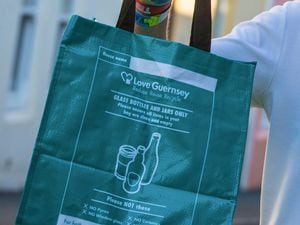Why the rush to open up?
Deputy Gavin St Pier is concerned that the risks associated with relaxing our border restrictions might outweigh the benefits

WE ARE living in strange times.
No, I don’t mean the pandemic. I mean our politics. The government is highly defensive and resistant to any scrutiny from any quarter. All questions, however fair or mundane the topic, are treated as suspicious acts of disloyalty and opposition. And so it was for many of us in and outside the States who have entirely reasonable and understandable nervousness about the opening of the so-called Blue travel category on 1 July, allowing fully vaccinated adults from the Common Travel Area (basically, anywhere in the British Isles) to enter the island untested and without isolation.
I am grateful to the Civil Contingencies Authority for the provision of additional information last week by means of its lengthy media release, the regular briefing and updating the ‘frequently asked questions’ section of the website.
I’ve no doubt that questions from outside will have helped catalyse the provision of this new information, but suspect the States will say, ‘we were going to provide this information anyway’.
I am pleased, too, that changes were made to ensure that unvaccinated children over the age of 12 will now be tested on arrival and on day seven, although it’s not readily discoverable on the website whether these tests must be paid for. Frustratingly, the part of the question ‘…and why has this changed?’ in the FAQs is not actually answered.
I am uncomfortable for two reasons with the line that ‘this is a political decision, but we always follow advice’.
Firstly, because it’s not borne out by the facts. Last September, the political judgement in relation to the level of risk that could be tolerated in travel restrictions was more cautious than the expert advice. With the benefit of hindsight and the experience outside the Bailiwick, the political judgement proved to be the right call.
Secondly, if things do go pear-shaped, this must not be used as a political get-out-of-jail card, i.e. ‘yes, we got it wrong, but we were just following advice’. The decision-makers own the decision, not the advisers.
Rightly, the CCA says we must learn to live with Covid. (It irritatingly states we must do so ‘responsibly’, which adds nothing.)
We must accept there will be active cases in the community, meaning many people – possibly hundreds – will need to isolate or work from home.
As the vaccine reduces the risks of hospitalisation by 96%, we can be assured that the risks of the health care system becoming overwhelmed are significantly reduced. But larger outbreaks could require the reintroduction of social distancing and face coverings or, in the worst case, more lockdowns.
I understand the need to be proportionate and the mental health and wellbeing need after so long to be able to reunite loved ones. While the Delta variant rages in the UK, the CCA has not adequately explained why we need to rush and why a four-week delay to allow most adults to become fully vaccinated would not be advantageous to the community. Having thousands more vaccinated over that time, apparently, ‘makes little difference’, without any clear justification being given for that statement. The CCA has decided that it is prepared to accept as a reasonable risk that any unvaccinated people who become infected in this period will not experience serious complications.
While the new regime suits my family situation, I remain of the view that the upsides, such as they are, do not outweigh the downside risks.
My fingers are firmly crossed that I am wrong.





